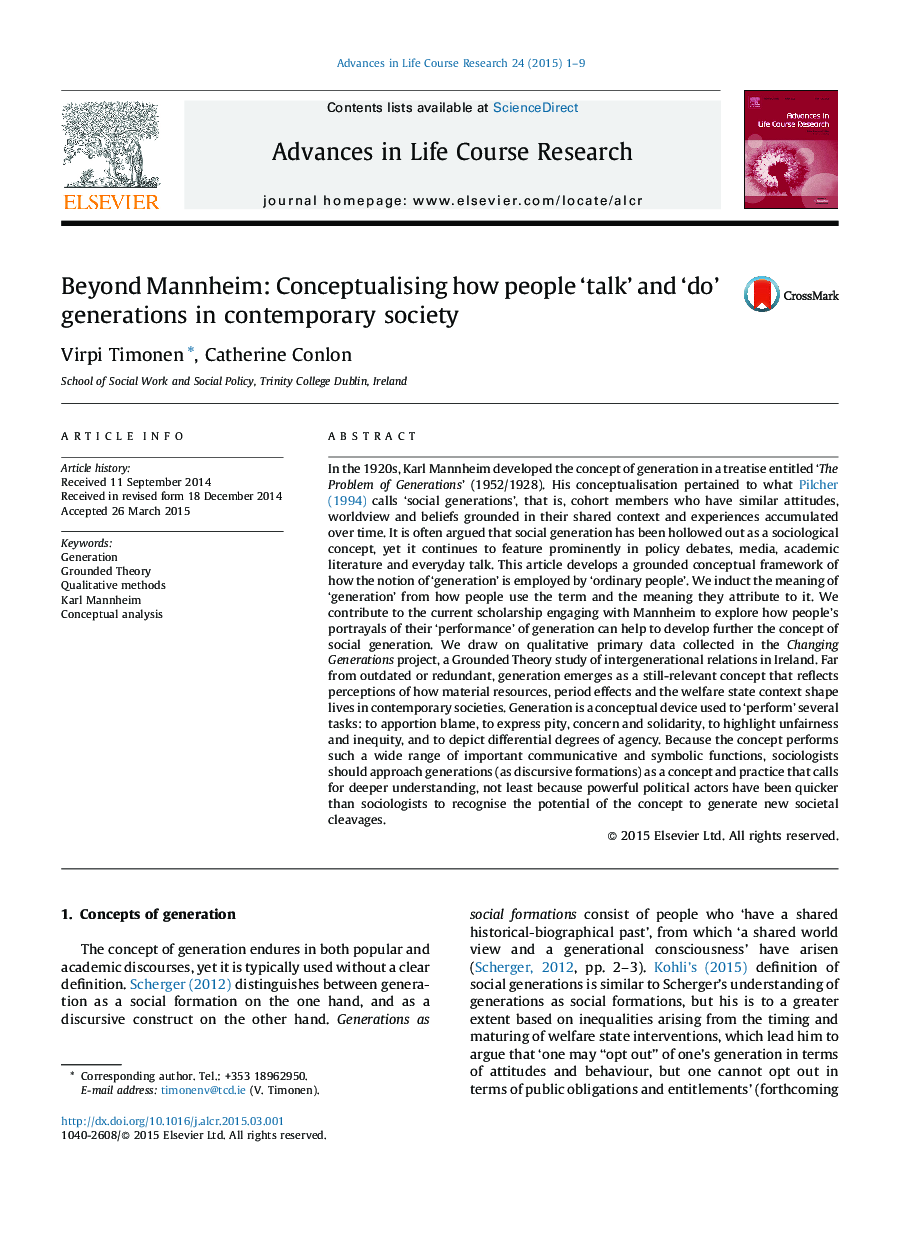| کد مقاله | کد نشریه | سال انتشار | مقاله انگلیسی | نسخه تمام متن |
|---|---|---|---|---|
| 6784976 | 534321 | 2015 | 9 صفحه PDF | دانلود رایگان |
عنوان انگلیسی مقاله ISI
Beyond Mannheim: Conceptualising how people 'talk' and 'do' generations in contemporary society
ترجمه فارسی عنوان
فراتر از مانهایم: مفهوم سازی نحوه صحبت کردن و انجام دادن نسل ها در جامعه معاصر است
دانلود مقاله + سفارش ترجمه
دانلود مقاله ISI انگلیسی
رایگان برای ایرانیان
کلمات کلیدی
موضوعات مرتبط
مهندسی و علوم پایه
ریاضیات
آمار و احتمال
چکیده انگلیسی
In the 1920s, Karl Mannheim developed the concept of generation in a treatise entitled 'The Problem of Generations' (1952/1928). His conceptualisation pertained to what Pilcher (1994) calls 'social generations', that is, cohort members who have similar attitudes, worldview and beliefs grounded in their shared context and experiences accumulated over time. It is often argued that social generation has been hollowed out as a sociological concept, yet it continues to feature prominently in policy debates, media, academic literature and everyday talk. This article develops a grounded conceptual framework of how the notion of 'generation' is employed by 'ordinary people'. We induct the meaning of 'generation' from how people use the term and the meaning they attribute to it. We contribute to the current scholarship engaging with Mannheim to explore how people's portrayals of their 'performance' of generation can help to develop further the concept of social generation. We draw on qualitative primary data collected in the Changing Generations project, a Grounded Theory study of intergenerational relations in Ireland. Far from outdated or redundant, generation emerges as a still-relevant concept that reflects perceptions of how material resources, period effects and the welfare state context shape lives in contemporary societies. Generation is a conceptual device used to 'perform' several tasks: to apportion blame, to express pity, concern and solidarity, to highlight unfairness and inequity, and to depict differential degrees of agency. Because the concept performs such a wide range of important communicative and symbolic functions, sociologists should approach generations (as discursive formations) as a concept and practice that calls for deeper understanding, not least because powerful political actors have been quicker than sociologists to recognise the potential of the concept to generate new societal cleavages.
ناشر
Database: Elsevier - ScienceDirect (ساینس دایرکت)
Journal: Advances in Life Course Research - Volume 24, June 2015, Pages 1-9
Journal: Advances in Life Course Research - Volume 24, June 2015, Pages 1-9
نویسندگان
Virpi Timonen, Catherine Conlon,
